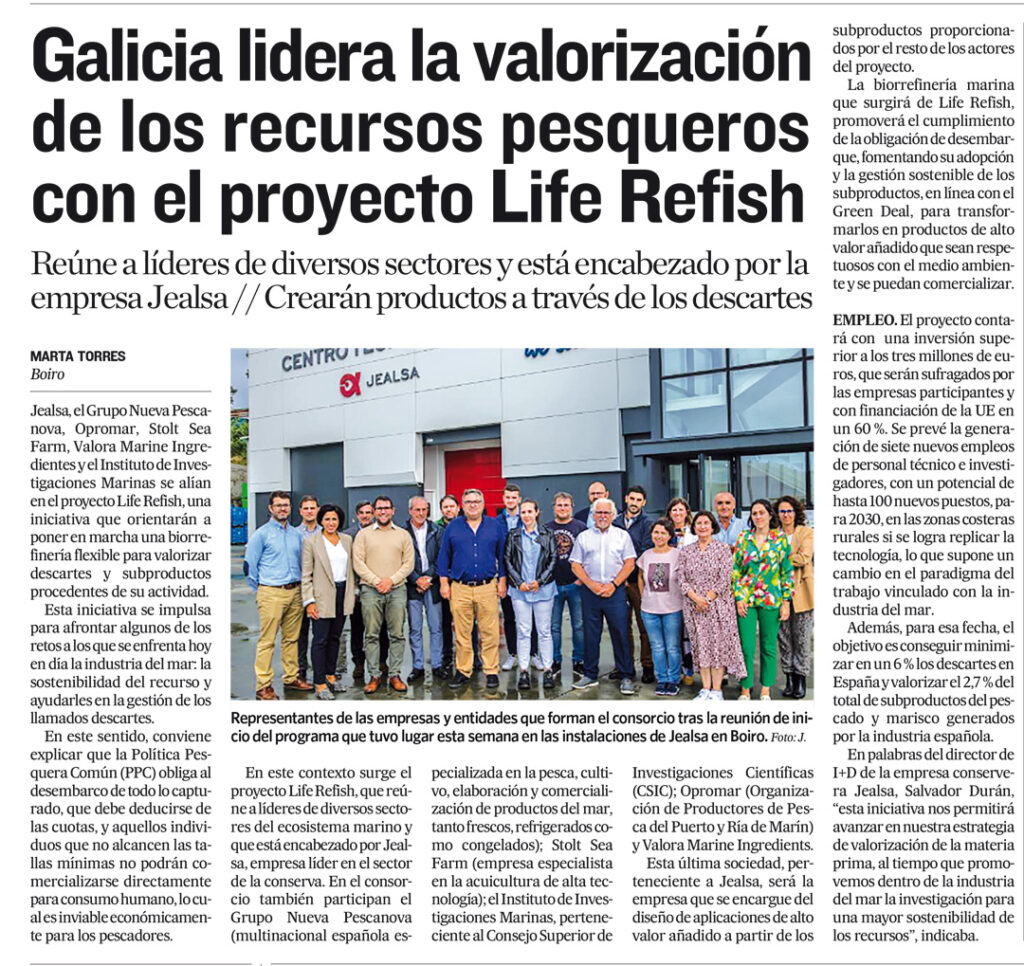It brings together leaders from different sectors and is led by the company Jealsa // They will create products from discards.
Jealsa, the Nueva Pescanova Group, Opromar, Stolt Sea Farm, Valora Marine Ingredients and the Instituto de Investigaciones Marinas have joined forces in the Life Refish project, an initiative aimed at setting up a flexible biorefinery to valorize discards and by-products from their activity.
This initiative is being promoted to address some of the challenges facing the marine industry today: the sustainability of the resource and to help them in the management of the so-called discards. In this regard, it should be explained that the Common Fisheries Policy (CFP) requires the landing of everything caught, which must be deducted from the quotas, and those individuals that do not reach the minimum sizes cannot be marketed directly for human consumption, which is economically unviable for fishermen.
It is in this context that the Life Refish project arose, bringing together leaders from various sectors of the marine ecosystem and led by Jealsa, a leading company in the canning sector. Also participating in the consortium are the Nueva Pescanova Group (a Spanish multinational specialized in fishing, farming, processing and marketing of fresh, refrigerated and frozen seafood products); Stolt Sea Farm (a company specializing in high-tech aquaculture); the Institute of Marine Research, part of the Spanish National Research Council (CSIC); Opromar (Organization of Fish Producers of the Port and Estuary of Marin) and Valora Marine Ingredients. The latter company, which belongs to Jealsa, will be responsible for the design of high value-added applications based on the by-products provided by the rest of the project’s stakeholders.

The marine biorefinery that will emerge from Life Refish will promote compliance with the landing obligation, encouraging its adoption and the sustainable management of by-products, in line with the Green Deal, to transform them into high value-added products that are environmentally friendly and marketable.
EMPLOYMENT. The project will involve an investment of more than three million euros, which will be borne by the participating companies and 60% of which will be financed by the EU. Seven new jobs for technical personnel and researchers are expected to be generated, with a potential of up to 100 new jobs by 2030 in rural coastal areas if the technology can be replicated, representing a change in the paradigm of work linked to the marine industry.
In addition, by that date, the objective is to minimize discards in Spain by 6 % and to recover 2.7 % of the total fish and seafood by-products generated by the Spanish industry. In the words of the R&D director of the canning company Jealsa, Salvador Durán, “this initiative will allow us to advance in our raw material valorization strategy, while promoting research for greater sustainability of resources within the seafood industry,” he said.


